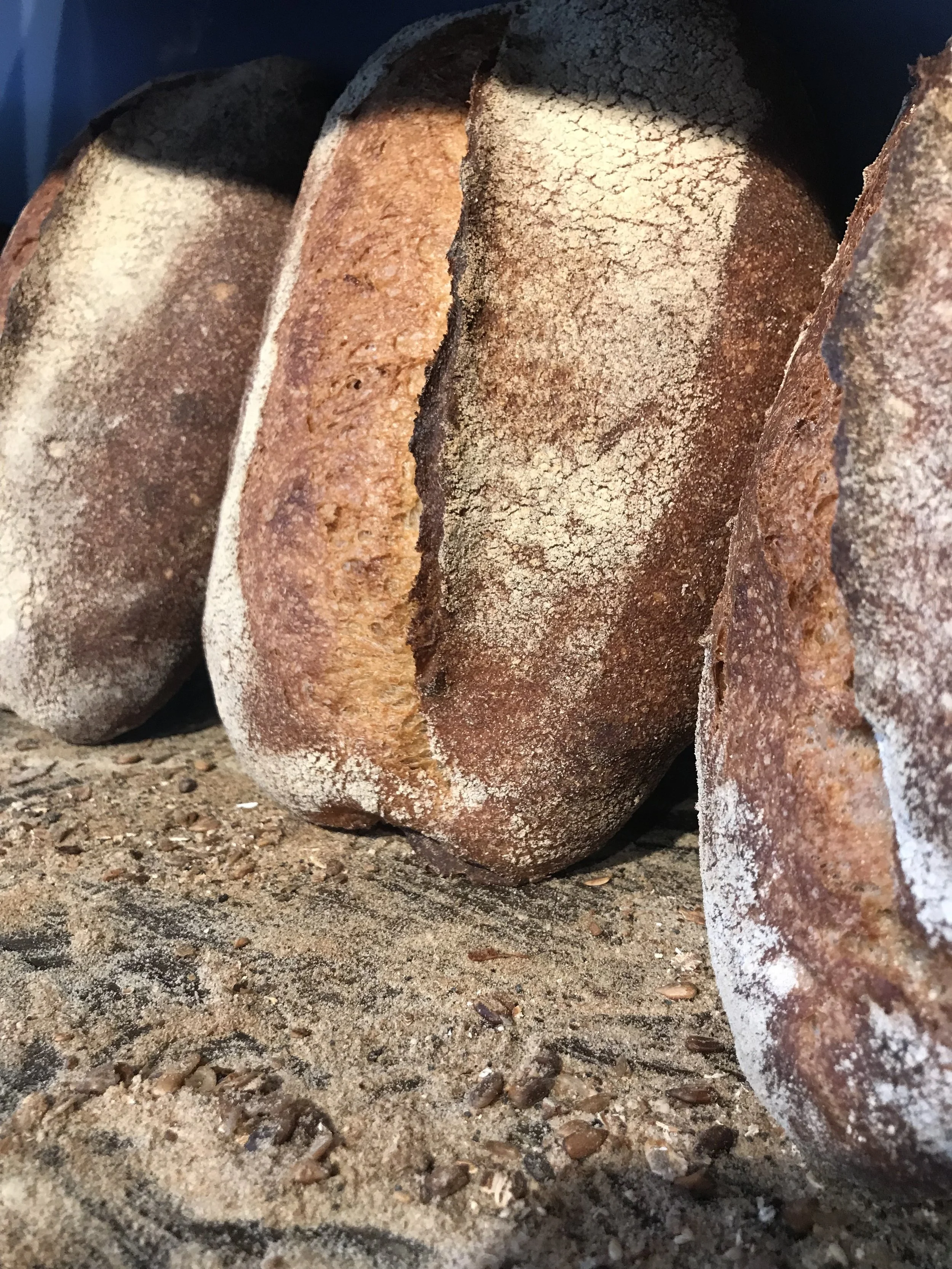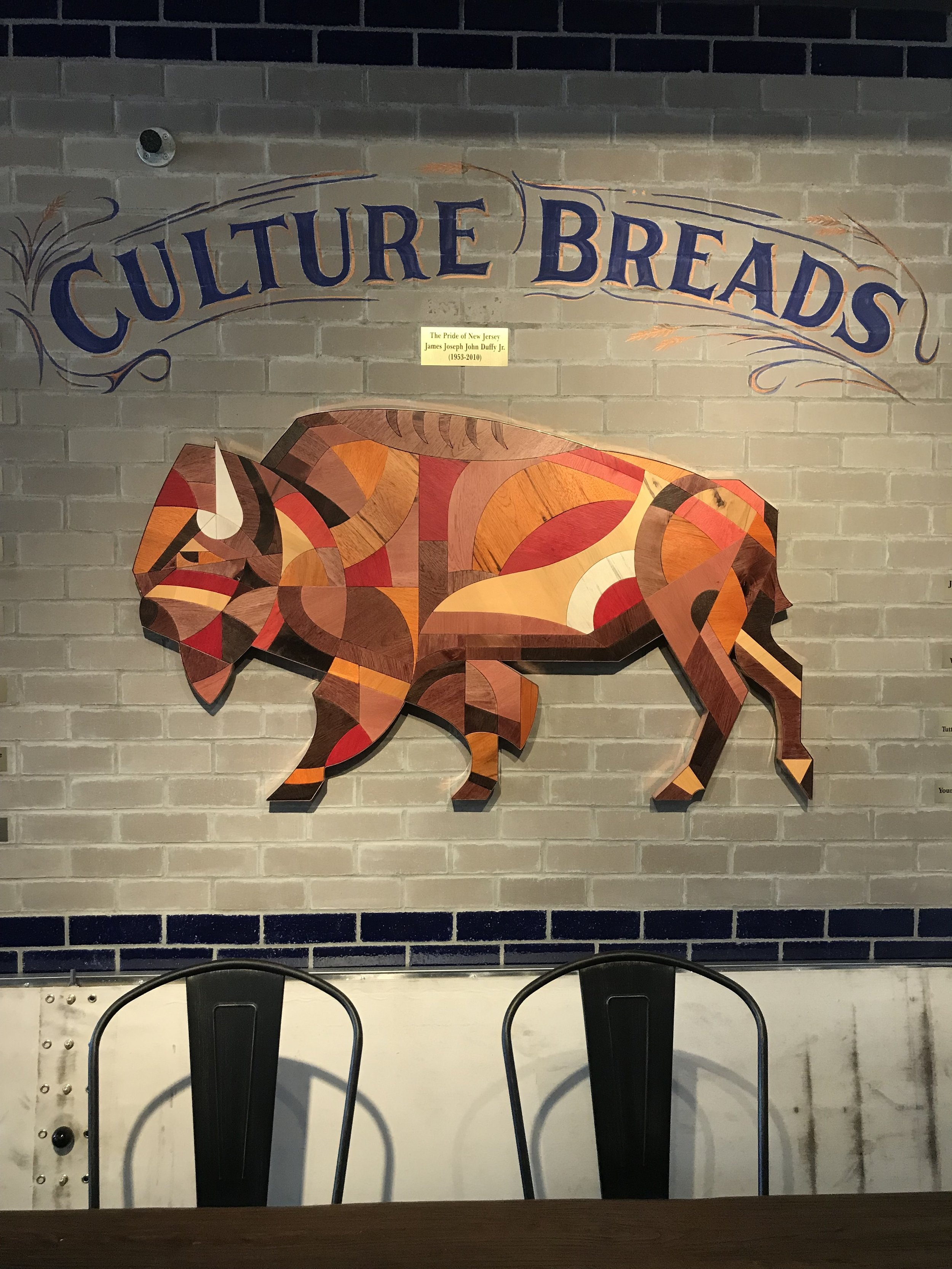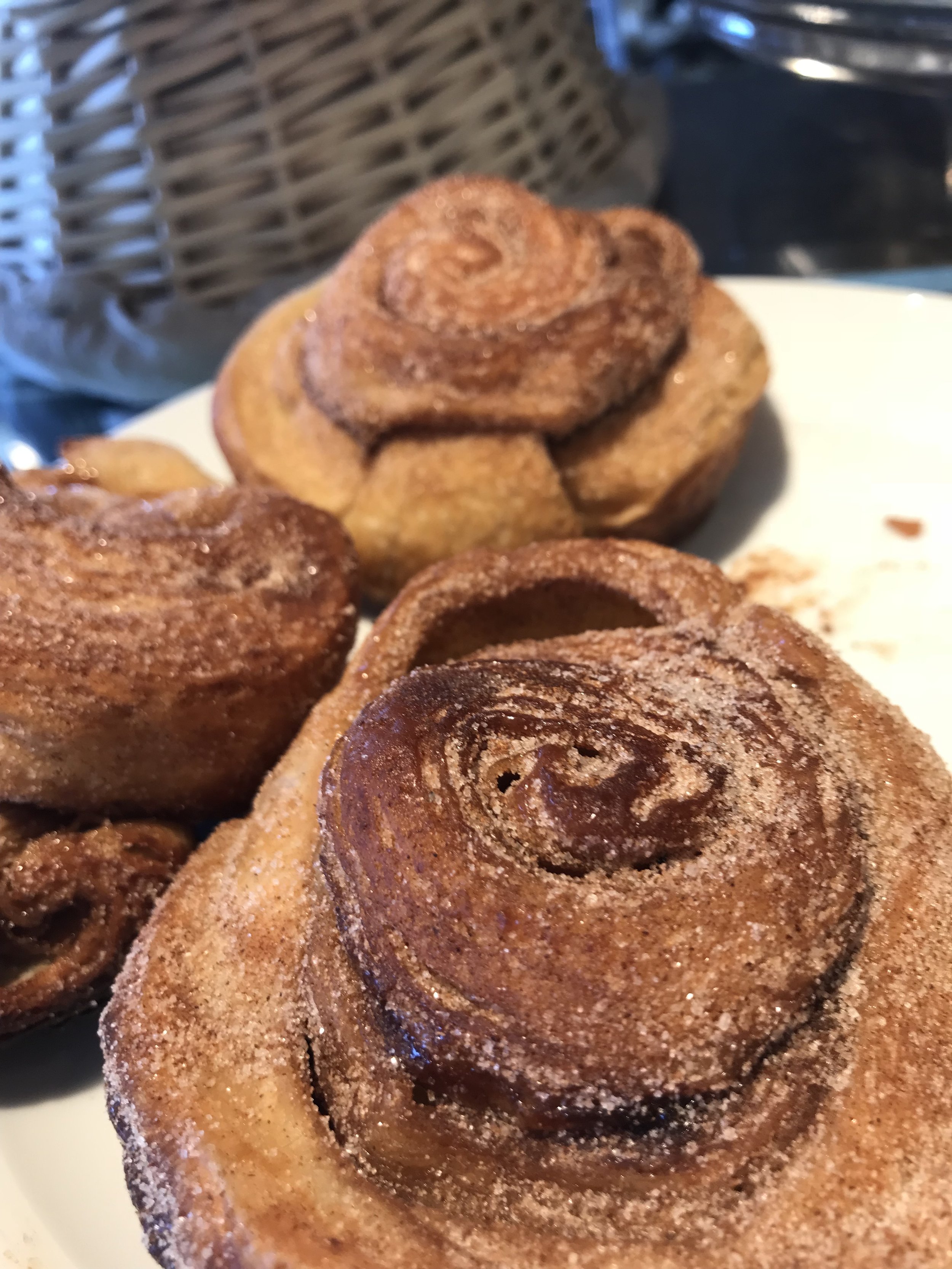***Our first ever post written by a guest writer!!!*** We are very excited to be publishing this article that our friend Nate Ghering collaborated with us on (more on Nate at the very end, be sure to check that out). I loved visiting Culture Breads last week and was blown away not only by their food but also by the incredible intricate practices that they employ. Nate did a fantastic job capturing all of this in his article, so without further ado we present to you "Cultured Breads", enjoy.
Eat good bread.
Real bread.
Cultured bread.
That is the essence of what Shaun Thompson Duffy wants to communicate to the Spokane community through his newly relocated and expanded business, Culture Breads (housed inside The Grain Shed). Bread (good bread) has, for millennia, been the cornerstone of a society’s diet. That bread is nutritious, filling, and energizing. So many of the most important things that we say we need in a balanced diet are found in it – protein, fiber, carbohydrate, and fat. But in the same way that wood moved away from being our primary source of heat and our own legs being our primary source of transportation, bread has been swept into this increasing trend - it's inconvenient, time intensive, and unpredictable, and the United States of 2018 certainly doesn’t have time for it either.
Unless your name is Shaun Thompson Duffy.
In which case using active dry yeast, flour purchased from a distributor, or a commercial oven just doesn't align with Shaun's passion and conviction. Instead, you leaven every single baked good with the same sourdough starter, you stone-mill grains that were grown within 100 miles of Spokane by your business partners, and you bake everything – every single thing that is cooked (whether a loaf of 100% rye bread, a barley brownie, or a chocolate chip cookie) in a giant, custom-built, wood-fired oven.
This ethic of doing things the old way, the hard way, the inefficient-yet-beautiful-and-fascinating way, is the only way of doing things at Culture Breads. They are housed in a renovated corner store on Newark, just around the bend from the ever popular Perry Street district along with the in-house nano-brewery that brews it’s beers by using the same grains Shaun is using in his bread.
The Grain Shed is the name you’ll see on the outside of the building. Upon stepping inside you'll see the massive wood-fired oven. You’ll order some cold brew coffee from DOMA Coffee Roasters and get one of their sandwiches, like the one I had when I came in to talk with Shaun or maybe you’ll get a flaky chocolate croissant or a slice of toast, thickly spread with homemade butter and jam. Speaking of that sandwich I had...it was their special that day and my goodness. Smashed sunchokes, wood fired carrots, garlicky onions, mozzarella, tomato schug (think tomato-ey pesto...yum!) and crème fraiche on oat ciabatta. I never would has guessed I’d like the wood fired carrots as much as I did (they deliberately leave some of the tops on and even they were delicious). I’d never even eaten a sunchoke before. This sandwich was stacked impossibly high and it was impossibly good. Sarah and I agreed it was one of the finer sandwiches we’ve ever eaten and, delightfully, it also managed to have that good-for-you-and-still-amazing and “oh wait, I don’t feel like crap!” affect on us, that’s a lot to say for a sandwich. But it’s worth saying. After all, the creator behind it is not one to take his food lightly
Shaun attended culinary school and cooked in Texas before cooking in New York, Las Vegas, and Portland. Along the way, he realized that, though so many of the restaurants he worked in were beginning to produce more and more in-house (think of the in-house charcuterie movement), there was very little attention being paid to bread, at least not in the same way. Bread, to Shaun’s mind, was not to be reduced to enriched white flour, active dry yeast, water and salt. To begin with, the quality of the flour mattered tremendously. What grain did it begin as? One of the wheats we inherited from the 50s that valued the carbohydrate heavy endosperm and abandoned the bran and germ? or an ancient grain, high in fat, protein and fiber? When was it milled and on what apparatus? And please...please don’t even think about commercial yeast. Only the wild yeast captured years ago in Shaun’s sourdough starter that is the root of everything he bakes would do. When he moved to Spokane, Shaun realized his passion for bread making had taken on a life of its own. After baking at Luna for a time, he had a wood fired oven built in his back yard, started a bread subscription service, and as a stay at home dad (at the time), he had his hands full. Culture Breads was born. That passion for baking real, good-for-your-gut kinds of bread was well enough received that, together with 3 other people who each bring a unique aspect to the business, they decided to launch The Grain Shed. Each business partner represents a key component of what they’re producing – the grains, malts, produce and beer are all sourced or produced by the guys behind The Grain Shed, which has the affect of making everything hyper-local, fresh, and unique.
This is the approach to food that so many of us long for but don’t take the time to learn or pursue. In a land of fast and easy, it’s daunting to even consider something as nuanced as what they’re doing here. Yet there’s something that feels right about it. There’s something about fire and fermented whole grains that intuits “This is right. This is what your body wants and needs.” And that’s exactly what Shaun (and his business partners) hope you’ll take away. They want to feed you and quench your thirst in a way that is satisfying and delicious, but is also connected to the world around us and to the way our bodies work best. I listen to food podcasts. Rejoice or eye-roll as needed. Recently, listening to one, I was struck by what a guest of the show, a doctor, was sharing about nutrition. He was speaking to the never ending fad diets and fix-all solutions that are marketed year after year. In essence, what is both easiest and hardest about food – that if we are to have the best relationship with food, and to be the healthiest we can be, we ought to eat the widest variety of the wholest foods we have at our disposal. That, instead of obsessing over the balance of carbohydrate and protein, of high fat and low fat, of grain free or grain heavy, we ought to find lots of different kinds of foods in their original form, eat them til we’re full, and then repeat next time we’re hungry again. That’s what Shaun, and the rest of the guys at The Grain Shed, are offering to us – simple, nutrient rich, carefully crafted food and drink that will nourish the body and soul. I think I can get behind that. Or in front of it. Or wherever I need to be, just so long as I can get some more of it.
Things to check out now:
• Monday pizza nights. 5pm until they sell out.
• The new Baronesse Pilsner (at a surprising 6.0% ABV) made with Baronesse Barley. So much
more flavorful than you hope for from a Pils.
• Ever changing sandwich offerings.
• Barley brownies (yummmm)
Things to look out for in coming months:
• Pretzels: think classic German malty goodness.
• Pie! Shaun plans to have pie available soon so you can enjoy some DOMA and a slice.
• Breakfast. They’re hoping to offer some breakfast options like shareable sized shakshuka.
Here's a little bit about about our friend and guest blogger:
"Hi, I’m Nate!
I’m a dad of two two year olds and married to a rockstar doula named Claire. I grew up north of Spokane, WA in a little town named Deer Park. Though I HATED most foods as a kid (all cheese, all seafood, most veggies), I did learn to cook at an early age and eventually decided I needed to grow up and like food! I haven’t turned back since! What I love most is the connecting that happens around food. I love helping people experience something special - the joy that I see in their eyes, the neurons that fire as a new food is tried for the first time. Food is a universal language and joy and I feel uniquely privileged when I get to help others find real joy in it."











